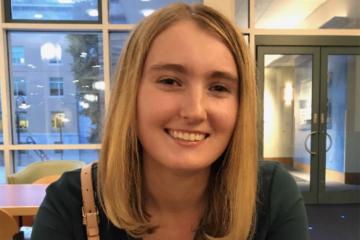For 30 years, Ms. Shapiro served as an Organization Behavior faculty at Simmons School of Management, teaching undergraduates, MBA students, and executives. She taught in the areas of leadership, team building, communication, and career management, all infused with the critical lens of multiple social identities. From 2014-2019, as the inaugural endowed position of the Diane K. Trust Professorship on Leadership Development, she contributed to the development of PLAN, the undergraduate general education curriculum; supported faculty across the campus developing a required leadership course; and built leadership development opportunities for all undergraduates. In that capacity she also created and evolved one of those required Leadership courses: "Introverts as Leaders".
In 2022, she retired as a Professor of Practice and became a Fellow of Simmons' Institute of Inclusive Leadership. In that position she continues her work with executives from for-profits, nonprofits, and government agencies from around the world, focusing on their leadership and navigating the complexity arising from intersectionality.
Ms. Shapiro continues to consult with Fortune 500 companies, private institutions, and non-profits, including organizations such as CVS Caremark, Harvard University, Liberty Mutual Insurance, and tech start-ups. She works with them to launch teams with the infrastructure necessary to produce optimal outcomes; intervene in teams in crises; and with organizational leaders seeking gender-equity. For 8 years she served as a member of the Executive Committee of the Girl Scouts of Eastern Massachusetts (GSEMA). In addition to her dedication to Girl Scouts, for 25 years she has raised funds for the Dana Farber Cancer Institute through the Pan Mass Challenge, a 200-mile bike ride. Ms. Shapiro received her M.B.A. and M.S. Economics from Wright State University, Dayton, Ohio.
Education
- M.B.A. Wright State University
- M.S. Wright State University
Research/Creative Activities
Ms. Shapiro's research often starts with the question "Is that true?" when the popular discourse is positioning women as deficient: women aren't sufficiently confident, risk-takers, or committed to work. She designs research to look beyond women's 'deficient' behavior to examine the context in which they acting through 3 lenses: one, is this a social issue? What is society messaging about what's appropriate behavior for women? Two, is it an organizational issue? What structures, processes or cultural norms may be unintentionally limiting women's ability to contribute or be seen as a leader? And three, is it an individual woman issue? To what extent have they internalized social messages that limits their own behavior? (see list of downloadable summaries of her research below)
Ms. Shapiro has three books aimed at people who work. In 2015, Harvard Business School Press published her book, "The HBS Guide to Leading Teams", which captured the strategies and stories from 25 years of working with teams. Earlier, she co-authored two books, Take Charge of Your Career and A Smart, Easy Guide to Interviewing, which extend an understanding of interviewing and work strategies to include the nuances of gender and other social identities. She also developed "The Communication Styles Diagnostic," an online tool that has been used by thousands of managers to improve their effectiveness with individuals and teams.
Creating Case Studies of Women in Business
Since 1908 when Harvard began the first M.B.A. program, case studies about leaders, used to illustrate business concepts, have overwhelmingly been about men. The Harvard Business School, the major producer of business school teaching cases with approximately 500 generated per year, produced about 10% of their cases with female protagonists in 2010-2014. In response to HBS's Dean's goal to increase that percentage, Shapiro has had two cases published by HBSP:
Her first case's protagonist is (retired Simmons President) Helen Drinan. The case, Helen Drinan: Giving voice to values (2010) described Drinan's time as SVP of Human Resources at Caritas Christi Health Care, which at that time, was the second largest health care system in Massachusetts. Drinan needed to determine how to address sexual accusations against the CEO, charges the organization's Board wanted to sweep under the run.
Her second case's protagonist is (retired Simmons Provost) Katie Conboy. The case, Katie Conboy: Leading change at Simmons College (2017) described Conboy's efforts as she led the faculty towards her vision of a new general education curriculum.
A third case is almost finalized for publication. Protagonist Susan Duffy describes her career moving into increasingly higher levels of responsibility through the lens of her introverted personality. Students identify how her introverted strengths, and intentional strategies, enabled her to be successful.
Selected Publications
These Insights are summaries of research distributed by the Institute of Inclusive Leadership, aimed at the practitioner audience with implications and suggestions for action, available to be downloaded for free.
Shapiro, M., Costello, M., Strowman, S., Birnbaum, S., & Blake-Beard, S. (2020). Women's Mentoring Experiences in the #MeToo Era. CGO Insight #46, Center for Gender in Organizations. Link at: https://www.simmons.edu/sites/default/files/2021-12/CGO-Insights-46.pdf
Blake-Beard, S., Van Dam, E., Rivera-Beckstrom, M., Gao, L., Shapiro, M., O'Neill, R., & Ingols, C. (2019). Women's Experiences with Male Allies. CGO Insight #45, Center for Gender in Organizations. Available at: https://www.simmons.edu/sites/default/files/2021-12/CGO-Insights-45.pdf
Grossman, D., Gao, L., Shapiro, M., Van Dam, E., & Hammer, D. (2017) Professional Women and Confidence: A New Understanding of the 'Gap'. CGO Insight #42, Center for Gender in Organizations. Available at: https://www.simmons.edu/sites/default/files/2021-12/CGO-Insights-42.pdf
Ingols, C., Shapiro, M., & Tyson, J. (2015). Throwing like a girl: How traits for women business leaders are shifting in 2015. CGO Insight #41. Available at: https://www.simmons.edu/sites/default/files/2021-12/CGO-Insights-41.pdf
Shapiro, M., Martin, K., Grossman, D., Deyton, P., Hammer, D., Lauren Walleser (2014). Dreaming big: Examining the career aspirations of girls of color. CGO Insights #40. Available at: https://www.simmons.edu/sites/default/files/2021-12/CGO-Insights-40.pdf
Shapiro, M., Blake-Beard, S., Carter, S., O'Neill, R., & Ingols, C. (2013). Confronting Contradictions: Exploring the Tensions of Women as Breadwinners. CGO Insight #36. Available at: https://www.simmons.edu/sites/default/files/2021-12/CGO-Insights-36.pdf
Shapiro, M., Deyton, P., Martin, K., Carter, S., Grossman, D., & Hammer, D. (2012). Dreaming Big: What's Gender Got to Do with It? The Impact of Gender Stereotypes on Career Aspirations of Middle Schoolers. CGO Insight #35. Available at: https://www.simmons.edu/sites/default/files/2021-12/CGO-Insights-35.pdf
Gupta, V., Maxfield, S., & Shapiro, M. (2009). Risky Business: Busting the Myth of Women as Risk Averse. CGO Insight # 28 Available at: https://www.simmons.edu/sites/default/files/2021-12/CGO-Insights-28.pdf
Shapiro, M., Ingols, C., & Blake-Beard, S. (2007). Optioning In versus "Opting Out": Women Using Flexible Work Arrangements for Career Success. CGO Insight #25. Available at: https://www.simmons.edu/sites/default/files/2021-12/CGO-Insights-25.pdf







